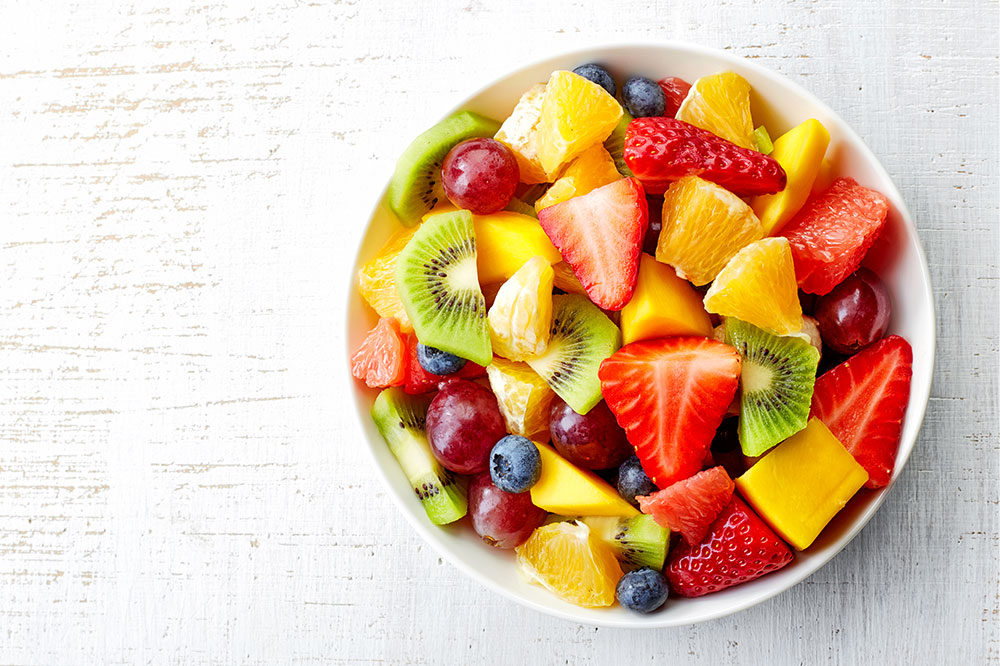Best foods for Parkinson’s symptom management

Parkinson’s is a disease that affects a person’s ability to control their movements as it progresses. This is because the disease affects the nervous system that is responsible for relaying brain signals to the rest of the body. It usually starts with light tremors and can progress to muscle stiffness and mobility issues. Treatment plans include medications coupled with changes in food habits and lifestyles. Read on to know more.
Foods rich in antioxidants
Oxidative stress is one of the main triggers of neuron degeneration among Parkinson’s patients. Many foods are rich in antioxidants that help combat oxidative stress and prevent free radicals from damaging healthy cells. Spinach and kale are nutritious antioxidant-rich veggies to include that you can be included in one’s food regime. Fresh grapes, pomegranates, blueberries, cranberries, blackberries, goji berries, and elderberries actively combat oxidative stress. Studies show that plant-based foods like tomatoes, peppers, and eggplant pack the highest amount of nutrition. One can add a few assorted nuts and seeds to the mix, featuring walnuts, pecans, Brazil nuts, and pistachios to balance the flavor palate.
Foods rich in omega 3 fatty acids
Healthy fats have been known to slow down the progression of chronic illnesses such as Parkinson’s. Omega 3 fatty acids can help bring down nerve inflammation, slow the neurodegeneration of cells, and improve neurotransmission to relay messages from the brain across the body more effectively. Seafood options like salmon, sardines, anchovies, mackerel, oysters, and herring are loaded with natural omega 3s. Alternatively, those who don’t consume fish can opt for supplements that contain these fatty acids. Soybeans, kidney beans, and flax seeds pack enough omega 3s to meet the daily requirements.
Foods containing essential vitamins and minerals
Any vitamin or mineral deficiency can hamper the immune system’s ability to combat stress and cell damage. It may also aggravate other Parkinson’s symptoms. Therefore, it is imperative to include iron, zinc, and vitamins B1, C, and D. Some red meats, organ meats like liver, beans, and a few assorted nuts are good sources of iron. Bananas, oranges, green peas, and whole-grain bread contain vitamin B1. Other citrus-rich fruits, starchy potatoes, colored veggies like peppers, and some berries contain Vitamin C. Red meats, oily fish, eggs, and fortified snacks are rich sources of Vitamin D. These foods are good for managing inflammation and cell degeneration to some extent.
Foods to avoid
These include many dairy products that can negatively affect brain oxidation levels. Foods rich in saturated fats can elevate blood pressure and cholesterol levels. Processed foods are laced with additives and preservatives that can trigger a rapid progression of the disease.
Medications for Parkinson’s
Medications like the Ongentys® Parkinson option can further supplement the healthy changes in food habits to improve Parkinson condition. Ongentys® Parkinson’s option is a class of medication that inhibits enzymes involved in the degeneration of healthy brain tissue. It can be used to manage symptoms like tremors, muscle spasms, poor motor control, and stiffness among patients.
RYTARY (carbidopa and levodopa)
Containing the medications carbidopa and levodopa, RYTARY is a medication that is prescribed for people with Parkinson’s disease. It is an extended-release medication that helps in controlling the motor symptoms commonly observed in Parkinson’s patients. Symptoms like muscular stiffness, tremors, among many others, can be managed with this medication. RYTARY also helps reduce the overall “off time” of the person and helps with slowness.